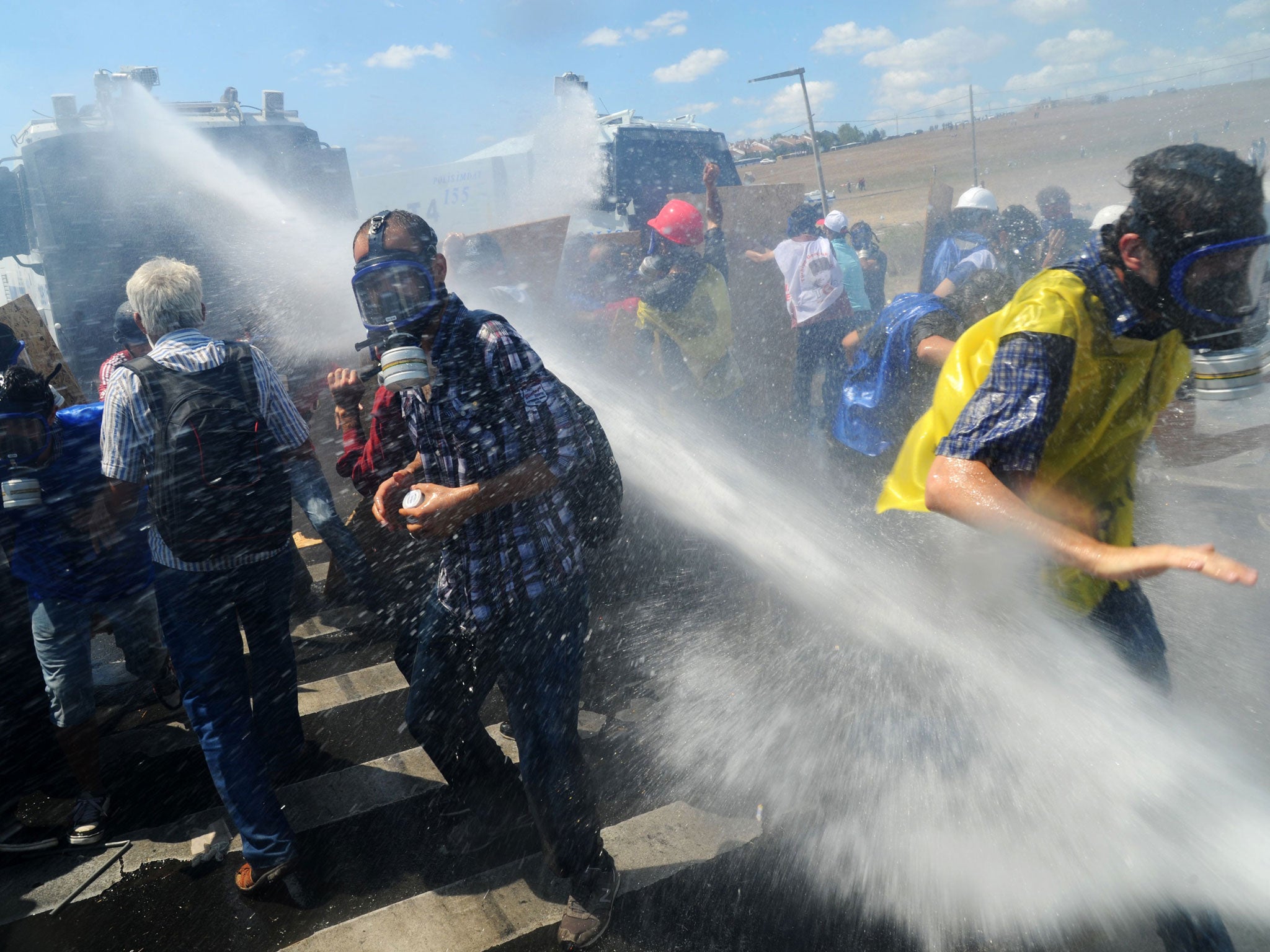Former head of Turkish army is one of 17 jailed for life over 'Deep State' coup plot
Ringleaders of ‘deep state’ plot are sentenced as epic trial concludes with 300 verdicts

Your support helps us to tell the story
From reproductive rights to climate change to Big Tech, The Independent is on the ground when the story is developing. Whether it's investigating the financials of Elon Musk's pro-Trump PAC or producing our latest documentary, 'The A Word', which shines a light on the American women fighting for reproductive rights, we know how important it is to parse out the facts from the messaging.
At such a critical moment in US history, we need reporters on the ground. Your donation allows us to keep sending journalists to speak to both sides of the story.
The Independent is trusted by Americans across the entire political spectrum. And unlike many other quality news outlets, we choose not to lock Americans out of our reporting and analysis with paywalls. We believe quality journalism should be available to everyone, paid for by those who can afford it.
Your support makes all the difference.A Turkish court has issued heavy sentences in a long-running court case involving nearly 300 defendants accused of plotting to overthrow the ruling Justice and Development Party (AKP).
The trial, which began in 2008, has marked a turning point in the battle between Turkey’s previously dominant secularist establishment whose power lay in the military, and the Islamist-leaning government established by the AKP.
Seventeen people, including Ilker Basbug, the former head of the Armed Forces, and Dursan Cicek, a retired navy colonel were given life sentences.
The trial initially involved 86 defendants, but the case eventually grew to include 275, who were tried on what some described as scant or fabricated evidence of involvement in Ergenekon, a “deep state” organisation founded in the Turkish Armed Forces. Ergenekon was accused of links to Turkey’s mafia underworld, involvement in extra-judicial killings, and coup plots against democratically elected governments.
Sixty of the defendants received lighter sentences and 21 were acquitted, including opposition MP Mehmet Haberal.
“A lot of these people deserved to be punished,” said Cengiz Candar, a Turkish political commentator. “They got those penalties, but it is overshadowed by a lot of injustice and the harsh penalties that are contrary to good conscience.”
Turkey’s military carried out coups in 1960, 1971, 1980 and pressured the government to resign in 1997.
Many of the defendants-which include current and retired military officers, journalists, and academics-were accused of planning to create unrest to justify a military intervention against the AKP, led by Prime Minister Recep Tayyip Erdogan. Their plot as described by the court included a plan to assassinate Mr Erdogan, bomb mosques, and kill minority leaders.
Establishing civilian control over the military has been a key part of Turkey’s European Union (EU) accession process.
The sentences were read in a court house in Silivri, a town located on the outskirts of Istanbul. Security forces closed roads for several miles around the courthouse, but demonstrators still attempted to march through the surrounding fields in support of the defendants.
Inside the courthouse, friends and acquaintances called out to the defendants. Family members were not allowed inside to hear the sentencing and waited for news in the field faced by hundreds of riot police.
Fidan Cagdar Balbay, 54, whose brother Mustafa was sentenced to 34 years in prison, said she received news of the trial from a journalist friend inside the court and television. “Our parents are very upset, but they are proud because they know he is innocent of what he is being accused of,” Balbay said, adding she would fight the court’s decision in the European Court of Human Rights.
In June, thousands of people in Turkey turned out for mass anti-government demonstrations against the government’s heavy-handed involvement in the lives of ordinary citizens.
But Cengiz cautioned against conflating the current anti-government sentiment with frustrations regarding the trial.
Despite the controversy over the sentences, Candar stressed that the trial was a necessary step for Turkey to move beyond its violent past. “In this country we had so many assassination and coup attempts,” he said. “And human beings did all these things.”
Join our commenting forum
Join thought-provoking conversations, follow other Independent readers and see their replies
Comments